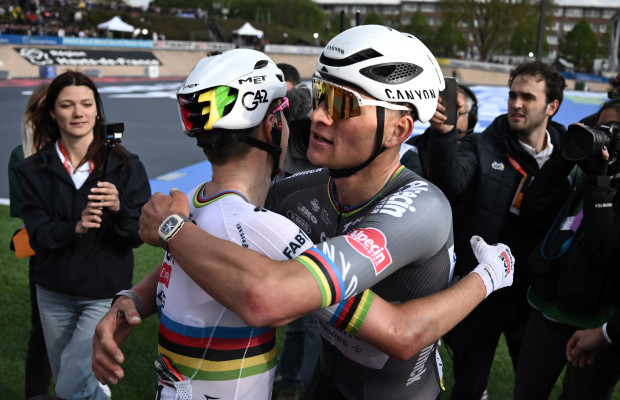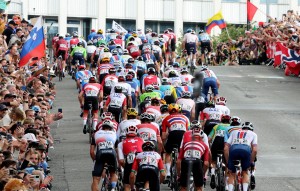The most unexpected effect of the past Road World Championship: "80% of the attendees are encouraged to ride a bicycle"
Months after the dispute of the first super world cycling championships, in which the UCI grouped most disciplines under its umbrella at the same venue, the organization of the championships takes stock through a report commissioned to the accounting firm Ernst&Young that is categorical: they were a resounding success.

Scotland satisfied with the legacy left by the first super world cycling championship
In recent times, the organization of major events is often questioned due to the difficulty of making the significant investments required for their organization profitable and, on the other hand, it is complex to measure and assess the return obtained after the event. Even so, beyond the economic aspect, these major events usually have another type of impact, less tangible and related to the legacy left after their celebration.
This is the case of the super World Cycling Championship held last summer in Glasgow, the first edition with a format in which the UCI grouped almost all cycling disciplines that are disputed under its protection at the same venue, a format they intend to repeat every four years and whose second edition will be held in the French region of Haute Savoie.
RECOMENDADO

Tips for getting up early to ride

Complete list of the highest paid cyclists of 2025

Shimmy Effect: why some bikes become uncontrollable when going downhill

How many calories are burned when cycling

What is heart rate variability and how does it affect the cyclist?

Fat Max Training to efficiently eliminate fat

Now, a report prepared by Ernst&Young certifies the success of these first super World Cycling Championships, not only economically, in which the positive impact on the region's GDP or the 220 million pounds spent in the region by attendees to this event are valued.
The intangible legacy left by the world championships is also valued and, according to the report, they have served as an inspiration to many Scots to opt for active mobility in their regular commutes. In fact, during the celebration of the cycling world championship, 82% of attendees chose active mobility forms for their commutes. However, it is more surprising when non-cyclists are asked. Of them, 55% claimed that these championships had inspired them and that they were likely to start using active commuting methods.

Promoting Scotland's cycling resources has also been another repercussion of these championships. At least, this is what 91% of attendees claim, who, thanks to the event, have discovered the cycling possibilities and the infrastructure available for cycling in Scotland.
The media impact was also notable, serving to show the world the beautiful landscapes of Scotland that reached 537 million viewers from 130 countries through television while more than a million visitors enjoyed the different tests, with the star day being the one that put the rainbow jersey on the line in the elite category, a test that was followed on site by 356,000 people.

Of course, both the leaders and the organizers have been extremely satisfied with the image offered to the world and the legacy left by these Cycling Championships. "This report shows the powerful legacy of the event, which extends beyond simply winning medals: it boosted the economy and inspired healthier lifestyles” said Angus Roberson, Scottish Culture Secretary.
Meanwhile, Paul Bush, president of the championships, commented that these had been a "benchmark for future editions, paving the way for generating positive long-term changes".